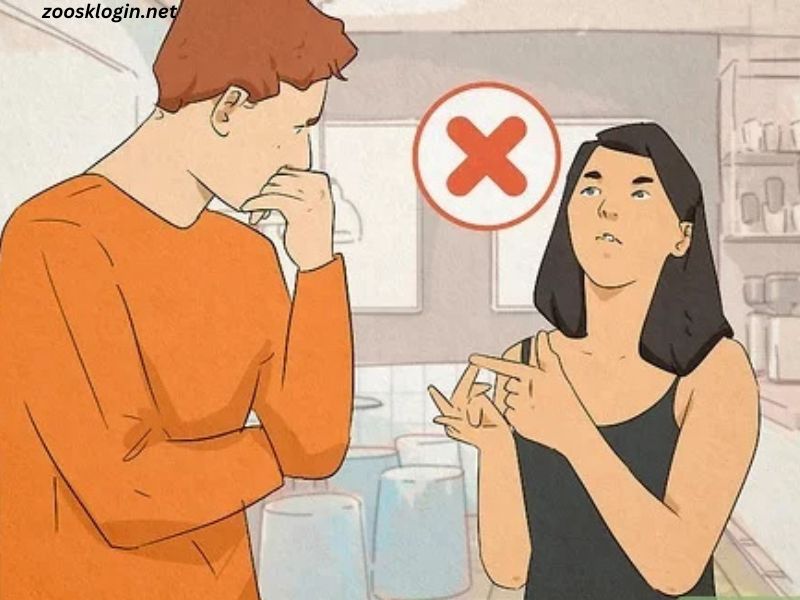Relationships can be complicated—sometimes, even before they officially begin. Whether it’s after a first date or a few casual conversations, realizing that you’re not interested in someone is perfectly natural. But breaking the news? That can feel like walking through a minefield.
How do you express yourself clearly without hurting their feelings? How do you avoid coming across as cruel while staying true to how you feel? We’re here to help! This guide will walk you through the most effective (and kindest) ways to tell someone you’re not interested. By the end, you’ll have the tools to communicate openly, respectfully, and confidently—minus the awkwardness.
Why Honesty Is Always the Best Policy
First things first, honesty is the foundation of healthy communication. Giving false hope or “ghosting” someone may seem like an easy way out, but it can leave the other person confused, hurt, and searching for closure. Research from the Journal of Personality and Social Psychology even highlights that perceived honesty in difficult conversations increases trust and respect over time.
Kind, direct communication doesn’t just benefit the other person—it also reflects your emotional maturity and self-respect. Plus, wouldn’t you appreciate someone being upfront with you?
Now that we’ve clarified the importance of honesty, let’s break down how to approach the conversation.
The Right Time and Place
Timing and environment matter just as much as your tone. Pick a moment when you can have an uninterrupted chat. If possible, aim for an in-person conversation—this shows respect and empathy. But if your connection is mostly virtual or long-distance, a phone call works too.
Avoid breaking the news during a holiday, their birthday, or an emotionally charged moment. You don’t want your message to feel like salt in an emotional wound.
Quick Tip
Don’t wait too long! Prolonging the inevitable extends false hope and makes the conversation twice as difficult later on.
What (and What Not) To Say
When you’re telling someone you’re not interested, clarity is key. Be honest, but empathetic. Here’s how to strike that balance.
Phrases to Use
- “I really appreciate getting to know you, but I don’t feel a romantic connection.”
This keeps it honest while acknowledging their effort.
- “You’re a great person, but I don’t think we have the chemistry I’m looking for.”
Highlighting qualities you respect about them allows for a positive tone.
- “I don’t want to waste your time because I don’t see this progressing romantically.”
This shows awareness of their time and emotional energy.
- “I think we’re looking for different things, and that’s okay.”
Recognizing differences puts the emphasis on compatibility rather than blame.
What to Avoid Saying
- “It’s not you, it’s me.”
This overused cliché feels insincere and dismissive.
- “I’m just not into your [insert trait].”
Critiquing someone’s personality or appearance will definitely hurt.
- “I feel sorry for you.”
Pity is not kindness—it’s condescending.
Keep it concise, considerate, and free of unnecessary details.
Handling Different Scenarios
Sometimes, the context of your relationship will influence how to approach the conversation. Here’s how to handle a few common scenarios.
1. After One or Two Dates
If you’ve only met a couple of times, the attachment is likely minimal. A polite but direct text might suffice if the connection feels casual. For example:
“Hi [Name],
I had a great time getting to know you, but I wanted to be honest. I don’t feel the connection I’m looking for. I wish you the best!”
This balances respect for their effort with the honesty they deserve.
2. When You’ve Been Talking for a While Online
For online connections, it’s essential to address honesty early on. Try this over a call or message:
“Hey [Name], I’ve really enjoyed chatting with you, but I feel it’s only fair to mention that I don’t see this turning into something romantic. I respect you and wish you all the best moving forward.”
3. When They’re a Friend
Navigating romantic disinterest with a friend can be delicate. Express your feelings while emphasizing the friendship you’d like to preserve.
“I want to say how much I value our friendship. I’ve realized I don’t feel the same way romantically and don’t want to mislead you. Our friendship is really important to me, and I hope we can keep that connection strong.”
Be prepared to honor their response—some friendships may need time to adjust.
What if They React Poorly?
Not everyone will handle rejection gracefully. If emotions run high or accusations come your way, stay calm and reaffirm your stance without escalating the situation.
You might say something like, “I understand this is hard to hear, and I’m sorry it hurts. Please know I’ve thought carefully about this, and I’m being honest because I respect you.”
Remember, their reaction is not your responsibility as long as you’ve delivered your message with kindness.
Why Avoiding the Conversation Isn’t the Answer
Ghosting—a.k.a. completely cutting off communication—is tempting for some, but it creates more harm than good. Ghosting leaves the other person questioning what went wrong, potentially lowering their self-esteem and trust in future relationships.
A survey conducted by OnePoll revealed that 80% of people would prefer to be told directly if the other person isn’t interested, rather than left wondering.
You owe it to the other person—and yourself—to approach the situation with honesty and integrity.
Moving Forward with Confidence
Telling someone you’re not interested is never easy, but taking the time to communicate clearly and kindly will make a world of difference. It not only helps the other person move on, but it also reflects well on you as a compassionate and emotionally mature individual.
And remember, rejection always stings, but it’s a part of growth for both parties. By choosing to be truthful, you’re contributing to a healthier culture of communication in relationships.
If you’re curious about handling trickier conversations or seeking guidance on building healthier dating habits, we’re here to help! Subscribe to our newsletter for weekly advice and insights catered to your relationship goals.






